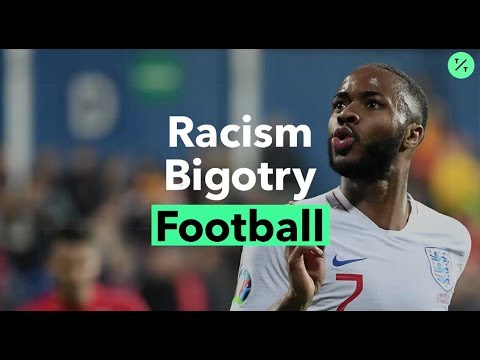In the world of professional football, where passion and skill often take center stage, a persistent and ugly undercurrent continues to mar the beautiful game: racial abuse. The recent incident involving **Weston McKennie**, the dynamic midfielder for the USMNT and Italian giant Juventus, serves as yet another stark reminder that this battle is far from over. Post-match, following a hard-fought victory against Parma, McKennie became the target of deplorable racial slurs while training with teammates. It`s a scenario that, unfortunately, has become all too familiar, casting a long shadow over the sport`s global appeal.
A Disturbing Pattern: Not McKennie`s First Encounter
For McKennie, this isn`t an isolated event. Merely a year prior, during a Coppa Italia clash against Lazio, reports surfaced of similar racist chants directed at him. Videos circulating online appeared to show fans making monkey sounds as he walked off the pitch after a late substitution. That Juventus found itself compelled to launch an investigation then, and to issue a statement now, highlights a deeply troubling pattern. It underscores the psychological burden placed on players who, simply by virtue of their presence and talent, are subjected to such vitriol. One might optimistically hope for progress, yet the recurrence suggests a stubborn resistance to change in certain pockets of fan culture.
Beyond Italy: A Global Challenge
While the latest incident occurred on Italian soil, the problem of racism in football is by no means confined to one league or country. Just a week before the McKennie incident, a Liverpool fan faced arrest following racial abuse aimed at Bournemouth`s Antoine Semenyo during a Premier League fixture. This geographical spread paints a concerning picture: from the fervent stadiums of Serie A to the iconic grounds of the Premier League, the ugliness of prejudice finds a way to surface. It suggests that despite widespread condemnation and numerous anti-racism campaigns, a fundamental shift in behavior remains an elusive goal for a segment of the fan base.
“The fight against racism in football is not merely about issuing statements; it`s about enacting tangible change and fostering a culture where such behavior is universally understood as unacceptable and met with swift, decisive action.”
The Unseen Scars: Impact on Players and the Game
What does it mean for a player, at the peak of their career, to constantly brace themselves for the possibility of racial abuse? It detracts from their focus, damages their mental well-being, and fundamentally undermines the joy of playing a sport they love. Furthermore, these incidents tarnish the image of football itself, a sport that prides itself on transcending borders and uniting people. When the headlines focus on discrimination rather than dazzling goals or heroic saves, the integrity of the game suffers.
The Ongoing Battle: Statements, Sanctions, and Education
Clubs and governing bodies often respond to such incidents with strong statements of condemnation, vowing zero tolerance. Juventus`s swift acknowledgment of the McKennie incident is commendable, signaling a commitment to addressing the issue head-on. Leagues and confederations, from UEFA to FIFA, have implemented various protocols, including stadium bans for offenders and points deductions for clubs whose fans engage in racist behavior. Yet, the persistent nature of these incidents raises questions about the efficacy of current measures. Is it a lack of enforcement? A challenge in identification? Or a deeper societal issue that football alone cannot resolve?
Perhaps the most potent weapon in this ongoing battle is education. Fostering an understanding of diversity, empathy, and respect from a young age, both within football academies and broader society, is crucial. Moreover, technology could play a larger role in identifying culprits, ensuring that the anonymity often afforded by large crowds does not shield those who propagate hate.
Moving Forward: A Call for Collective Responsibility
The saga of Weston McKennie, Antoine Semenyo, and countless other players highlights a truth we cannot ignore: racism remains a significant challenge in football. While the passion for the game should be celebrated, prejudice has no place on the pitch, in the stands, or in society. It requires a collective, unwavering effort from clubs, leagues, players, and — critically — the fans themselves, to truly eradicate this stain. Until then, players like McKennie will continue to fight not just for three points, but for fundamental human dignity.







